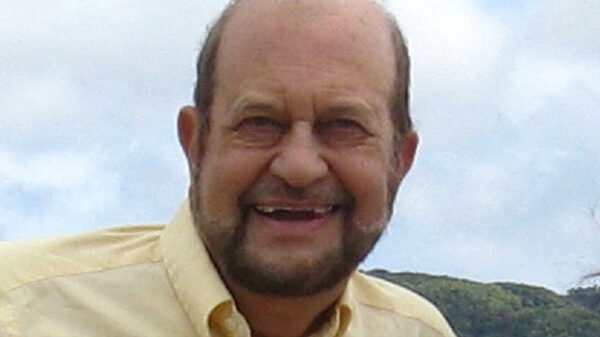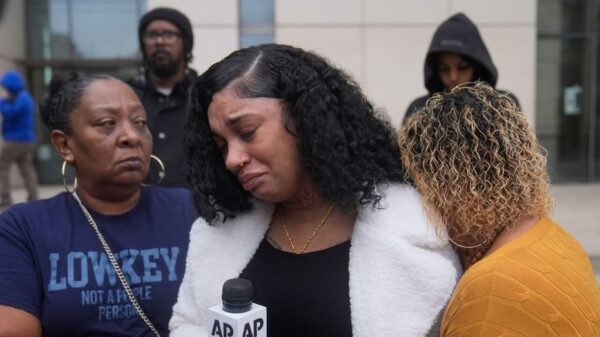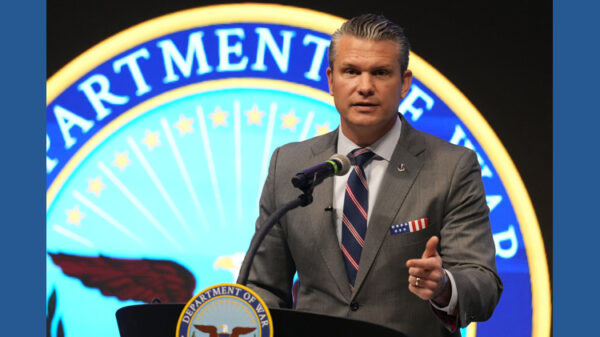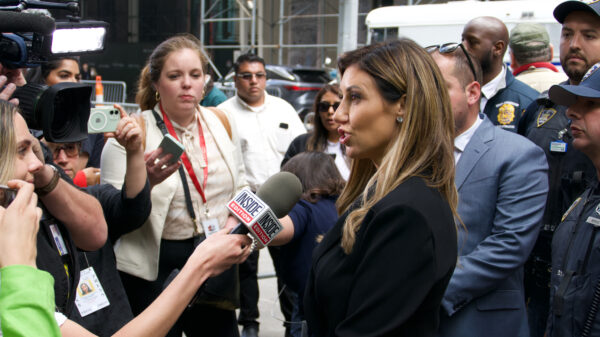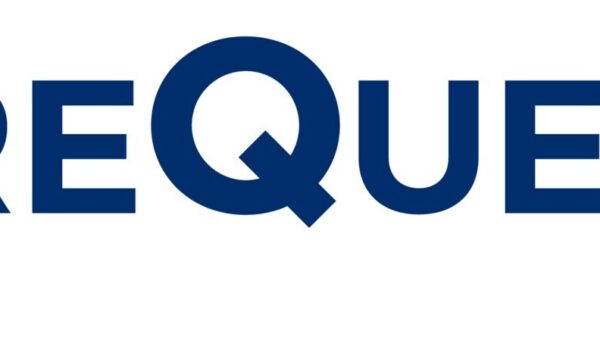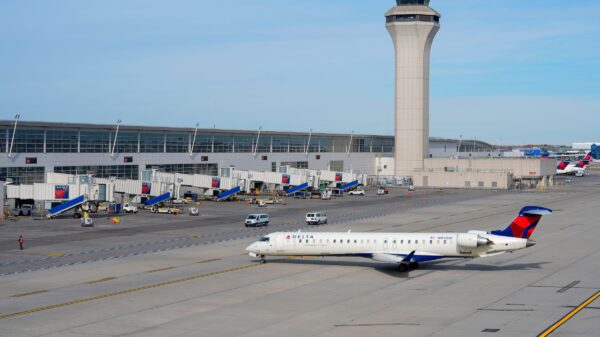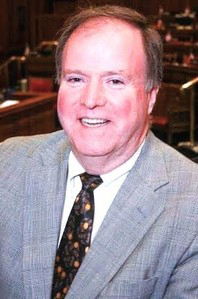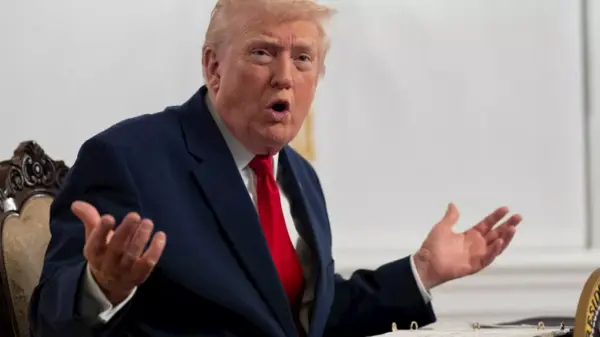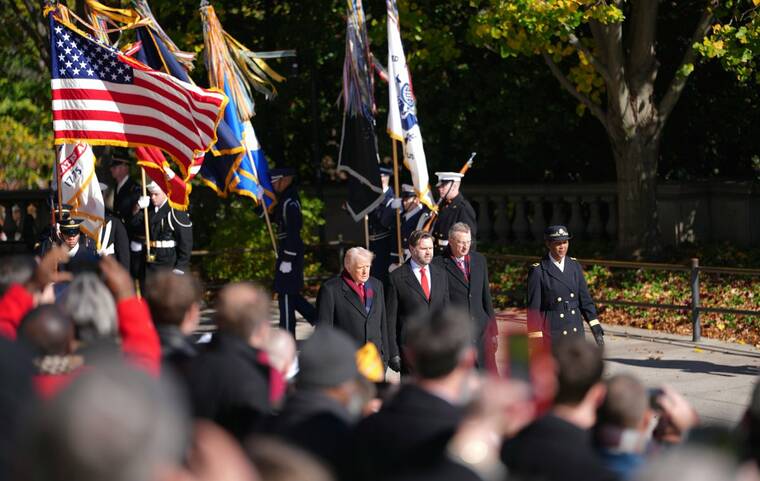President Donald Trump characterized the recent end of the longest government shutdown in U.S. history as a significant triumph for the Republican Party during his Veterans Day address. Speaking at Arlington National Cemetery, he intertwined respectful tributes to military service members with assertive political statements, celebrating the Senate’s passage of legislation designed to reopen the government.
Trump expressed gratitude to Republican leaders for their roles in the legislative process, stating, “We’re opening up our country. Should have never been closed.” This remark came shortly after a bipartisan effort led by a critical faction of Democrats and Republicans resulted in a spending package aimed at resolving the shutdown, which had raised concerns about the compensation of federal workers and military personnel.
The newly approved measure, now awaiting consideration in the House of Representatives, does not include an extension of federal health care subsidies that Democrats had sought. Despite the ongoing political battles, the temporary resolution alleviates some immediate concerns regarding payment for military members, although Trump had previously funded military salaries through reallocated resources and private donations.
Trump’s speech also highlighted his intention to propose renaming the Department of Defense back to the Department of War, a title it held for over a century until shortly after World War II. He stated, “We brilliantly decided to change the name of this great thing that we all created together,” criticizing political correctness and asserting the need to focus on winning wars.
The President’s rhetoric during the address showcased his unconventional approach to military matters, which has raised concerns among legal experts regarding the legality of certain military actions. His administration has engaged military assets in operations against vessels allegedly involved in drug trafficking in the Caribbean and eastern Pacific, actions some legal scholars have labeled as extrajudicial killings.
Furthermore, Trump has increasingly mobilized the military in domestic contexts, deploying approximately 10,000 troops to the southwestern border to address illegal immigration, despite a significant decrease in border crossings. Military historians have noted that such domestic deployments could undermine the perceived impartiality of the armed forces and trust among the public.
Retired Rear Admiral James R. Stark, who served during the Vietnam War, commented on the military’s mixed sentiments towards Trump. “The military is not monolithic at all,” he noted, suggesting that while some enlisted personnel may resonate with Trump’s style, many officers are more critical of his approach.
During his address, Trump reiterated his commitment to veterans, citing the dismissal of “thousands of people who didn’t take care of our great veterans” at the Department of Veterans Affairs. Critics, however, have pointed out that the administration’s downsizing efforts have resulted in the termination of many federal employees, including veterans, which has adversely affected veteran services.
Despite these challenges, the Trump administration announced the opening of twenty new veterans health facilities across the country, promoting their efforts in veterans’ affairs as a key accomplishment.
The President’s remarks included a controversial proposal earlier this year to rename Veterans Day to “Victory Day for World War I,” a suggestion that faced backlash from veterans’ groups for potentially undermining the contributions of living veterans. Although Trump ultimately did not pursue the name change, a recent White House statement acknowledged the holiday using his preferred title.
As Trump continues to navigate the intersection of military engagement and political strategy, his administration’s actions and rhetoric remain a focal point of discussion regarding the role of the armed forces in American society.



